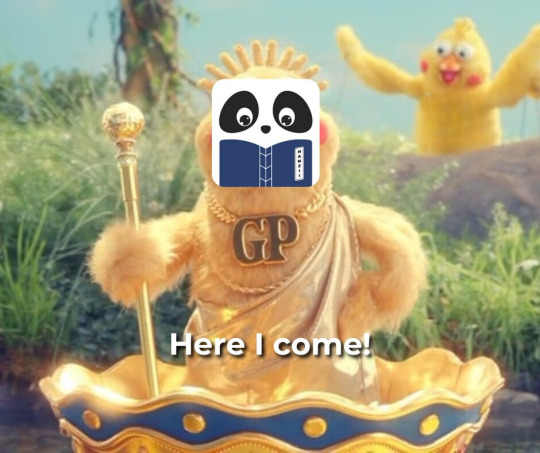Text
THE CROW IN CHINESE CULTURE 🐦⬛GOOD OR BAD❓❓
THE CROW IN CHINESE CULTURE 🐦⬛
GOOD OR BAD❓❓
👉First, everyone must see that the Chinese character for crow (乌 - wū) is very similar to the character for bird (鸟 - niǎo). The only difference is the lack of a line to represent the eyes, because the crow's eyes are black so they can't be seen clearly on its black feathers, I'm afraid 🤡
Also the Chinese name of the crow comes from its rough cry. This cry is considered a bad omen, especially when crows are heard during trade negotiations. Its cry sounds like the Chinese word for "bite" (咬 - yǎo).
👉However, in China, crows do not have as bad a reputation as in the West
✨The behavior of crows is to often help their parents raise the next generation. The Chinese have observed this and therefore, crows have become a natural symbol of devotedly taking care of their parents.
✨The crow also has a positive meaning as a symbol of the sun, shown through the mythical image of the red three-legged crow. (because it is believed that the sun is ruled by a red three-legged crow.)
✨And there is an old Chinese proverb that says "it is better to be an upright crow than a treacherous magpie" showing that this proverb emphasizes integrity and honesty. Since then, the image of the crow has been considered a better symbol than the magpie, which is known for its cunning, everyone.
Crows in China aren't too ugly either :v 🥰
🐼Let's learn and explore the fun of Chinese together:
Mandarin - Culture - Enjoyment and more
Download Hanzii now!⚡

#chinese#chinese learning#chinese dictionary#language stuff#language#study aesthetic#hanzii#study blog#study motivation#studyblr
0 notes
Text
已经 (Yǐjīng) and 曾经 (céngjīng)?
已经 (Yǐjīng) and 曾经 (céngjīng)?
📌These two words are simply adverbs, expressing actions and events that have happened recently.
📌However, 曾经 represents actions and events that happened in the past, a long time ago (emphasis on time). And the action, the incident, has ended and does not last until the present.
For example: 我曾经当过导游。/ Wǒ céngjīng dāngguò dǎoyóu./ : I used to work as a tour guide.
- 曾经 is only used in the past and is often combined with 过, rarely with 了.
For example: 我曾经去过很多国家。(Wǒ cēngzài qùguò hěn duō guójiā.) - I have been to many countries.
📌And 已经 represents actions, events, and time that happened. (emphasis on events, actions). But the action, event, or time may or may not have ended, but it may still be going on right now.
For example: 这件事已经公开了,请你详细说说内情 /Zhè jiàn shì yǐjīng gōngkāile, qǐng nǐ xiángxì shuō shuō nèiqíng/: This issue has been made public. Please let me know the details.
- Often combined with 了, can also be combined with 过
For example: 我已经学习了汉语三年了。(Wǒ yǐjīng xuéxíle weldyǔ sān nián le.) - I have been studying Chinese for three years now
#chinese#chinese dictionary#hanzii#language#chinese learning#study aesthetic#language stuff#study blog#study motivation#studyblr
0 notes
Text
❓Origin of the phrase "多喝热水" (Duō hē rè shuǐ)
Anyone who has interacted with Chinese culture is likely familiar with this phrase. The three typical phrases of unrefined boys who lack subtlety are:
多喝热水 - 早点睡觉 - 一会儿就好了
(Drink more hot water - Go to sleep early - It will be fine in a moment)
❓So where does this phrase originate from?
In fact, this phrase originated from a historical period of China known as 抗美援朝 (kàngměiyuáncháo) "Resist America, Aid Korea."
The US once dropped a large number of harmful insects over Northeast China by plane. In response, the Chinese government established the Central Epidemic Prevention Committee and launched the Patriotic Health Campaign (爱国卫生运动).
The campaign included measures such as improving household sanitation and always boiling and drinking hot water to prevent diseases.
At that time, due to a shortage of supplies, hot water became the strongest weapon for the people to fight against diseases. Everyone adhered to the rule of drinking hot water.
Thus, drinking hot water has become a good tradition, protecting the health of the Chinese people clap
If you need any further assistance or translations, feel free to ask!

#chinese#chinese dictionary#chinese learning#hanzii#language#language stuff#study aesthetic#study blog#study motivation#studyblr
0 notes
Text
What's the difference between 幸亏 and 多亏?🥰🫰
What's the difference between 幸亏 and 多亏?
📌In terms of similarity, these two expressions both mean "so lucky, so lucky, so lucky" - they both represent luck in avoiding unwanted things.
And these two words both stand at the beginning of the sentence. Sentences containing "幸亏","多亏" often cite a small reason.
📌If there are differences, it's easy to distinguish
✨幸亏 /Xìngkuī/: "luck" in "xìng kuī" is not due to subjective luck but due to unexpected objective factors
"幸亏" is used in all situations, not only indicating luck in receiving help from others, but also thanks to objective factors.
"幸亏" can only be used as an adverb
For example: 那时候下着很大的雨, 幸亏我发现了一个小木屋 /Nà shíhòu xiàzhe hěn dà de yǔ, xongkuī wǒ fāxiànle yīgè xiǎo muiwū/ : It was raining very much at that time big but lucky to find a small hut
✨多亏 /Duōkuī/ often emphasizes receiving help from someone. Emphasize both objective factors and human efforts
"多亏" can be a predicate or an object
For example: 我们能度过这个难关,多亏了你的帮助 /Wǒmen nhiguò zhège nánguān, duōkuīle nǐ de bāngzhù/ : We can get through this with your help

#hanzii#language stuff#study aesthetic#language#chinese dictionary#chinese#chinese learning#study blog#study motivation#studyblr
0 notes
Text
WHY ARE FOXES CUTE BUT HATED IN CHINA?
WHY ARE FOXES CUTE BUT HATED IN CHINA?
In the West, foxes are highly regarded for their cunning and resilience, while in China, they are often associated with much more negative connotations, dear family :v
In Chinese culture, foxes are seen as creatures closely related to the spirit world. Because foxes often frequent graveyards and dig up graves to eat the food buried there, it leads to the speculation that they are the embodiment of the souls of the deceased. Therefore, foxes carry a mysterious image, even somewhat eerie, causing people to be wary and avoid them.
Additionally, foxes are believed to live very long lives; at 50 years old they can transform into women, at 100 years old into charming young ladies, and at 1000 years old they become powerful deities with nine tails
Daji (妲己) - the cruel favorite concubine of the last king of the Shang dynasty (King Zhou - King Zhòu) is thought to have been a fox in disguise, acting very cruelly, inventing brutal tortures for the innocent - including roasting them alive in bronze vessels. This image further reinforces the perception of the fox's cunning and malevolence. loudlycrying
Some Chinese proverbs also refer to the fox with negative implications, such as "Huli Jing" (狐狸精 - the fox spirit) implying a cunning, flirtatious woman, or "Tiger's mouth snatches food" (stealing food from the mouth of a tiger) metaphorically describing a reckless, daring act.
Overall, the bad reputation of foxes in China is the result of a mix between cultural elements, beliefs, and the animal's behavior.
However, not everyone in China views foxes negatively. In some regions, foxes are still worshipped as divine beings that bring good fortune, dear beloved family
Credit: Hanzii Chinese Dictionary

Join our platforms:
https://www.linkedin.com/in/hanzii-hanzii-dict-459365303/
#hanzii#hanzii dict#hanzii dict pc#hanzii web#chinese dictionary#chinese learning#chinese#language stuff#language#bilingual#study aesthetic#study blog#study motivation#studying#student life#studyblr#culture
0 notes
Text
How to Learn Vocabulary Effectively to Reach HSK6 Level
Hanzii Chinese Dictionary
Achieving HSK6 requires a substantial vocabulary to communicate and write proficiently. Here are some tips I've found helpful in memorizing hundreds of vocabulary words:
1. Set Goals:
Determine your purpose for learning vocabulary (HSK exam, HSKK exam, native communication, academic purposes, studying abroad, etc.). Having clear goals helps you select relevant vocabulary and stay focused.
2. Learn Vocabulary by Topic and Context:
Instead of memorizing isolated words, learn them within sentences, paragraphs, or specific situations. This enhances your understanding of word usage and interaction with other words. Consistent practice is crucial to avoid forgetting.
3. Utilize Flashcards:
Flashcards are a classic learning tool. I recommend using Hanzii flashcards, which categorize vocabulary by HSK levels and topics. Choose a topic and focus on 10-15 words per session, aiming for 3-4 sessions daily. Start with fewer words (5-8) and gradually increase as you progress.
4. Combine Listening, Reading, Speaking, and Writing:
Incorporate vocabulary learning into various activities. Watch videos or movies, listen to native speakers, and try repeating what you hear. Look up unfamiliar words and note their pronunciation and usage. Regular writing practice also reinforces vocabulary retention.
5. Create a Study Schedule and Stay Consistent:
Plan your daily study routine. I personally find 30 minutes of focused learning per day to be effective. Consistency is key to long-term success. Avoid cramming and maintain a disciplined approach.
6. Find Enjoyable Learning Methods:
Learning should be engaging. Find methods that suit your preferences and make the process enjoyable. Experiment with different techniques and stick to what works best for you.
Remember, everyone has a unique learning style and journey. Don't compare yourself to others and avoid feeling pressured. Focus on giving your best effort and celebrate your progress along the way.

#chinese#hanzii#language#studyblr#student#study motivation#study blog#study aesthetic#mandarin#chinese learning#chinese dictionary#dictionary#language stuff#linguistics
5 notes
·
View notes